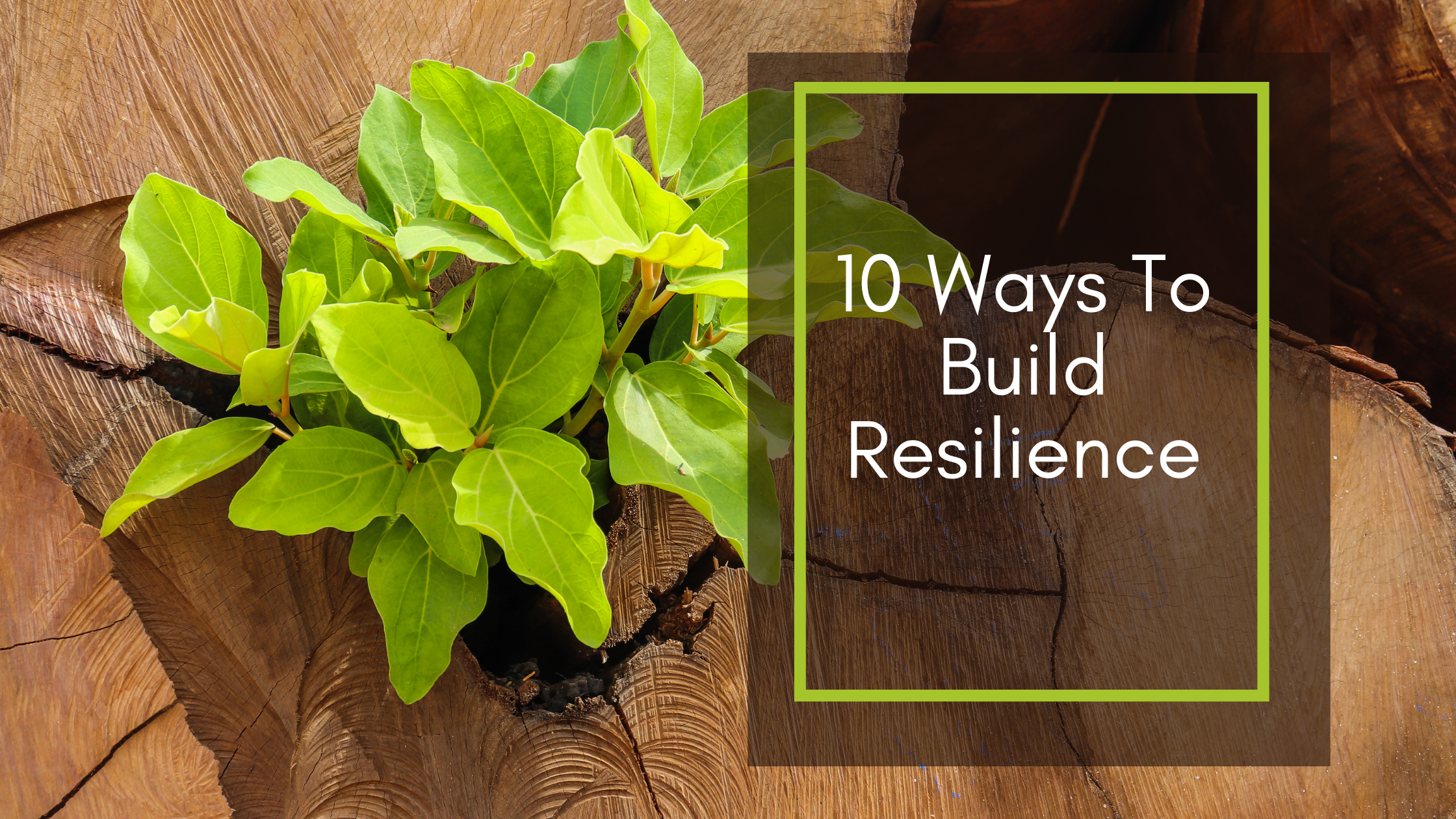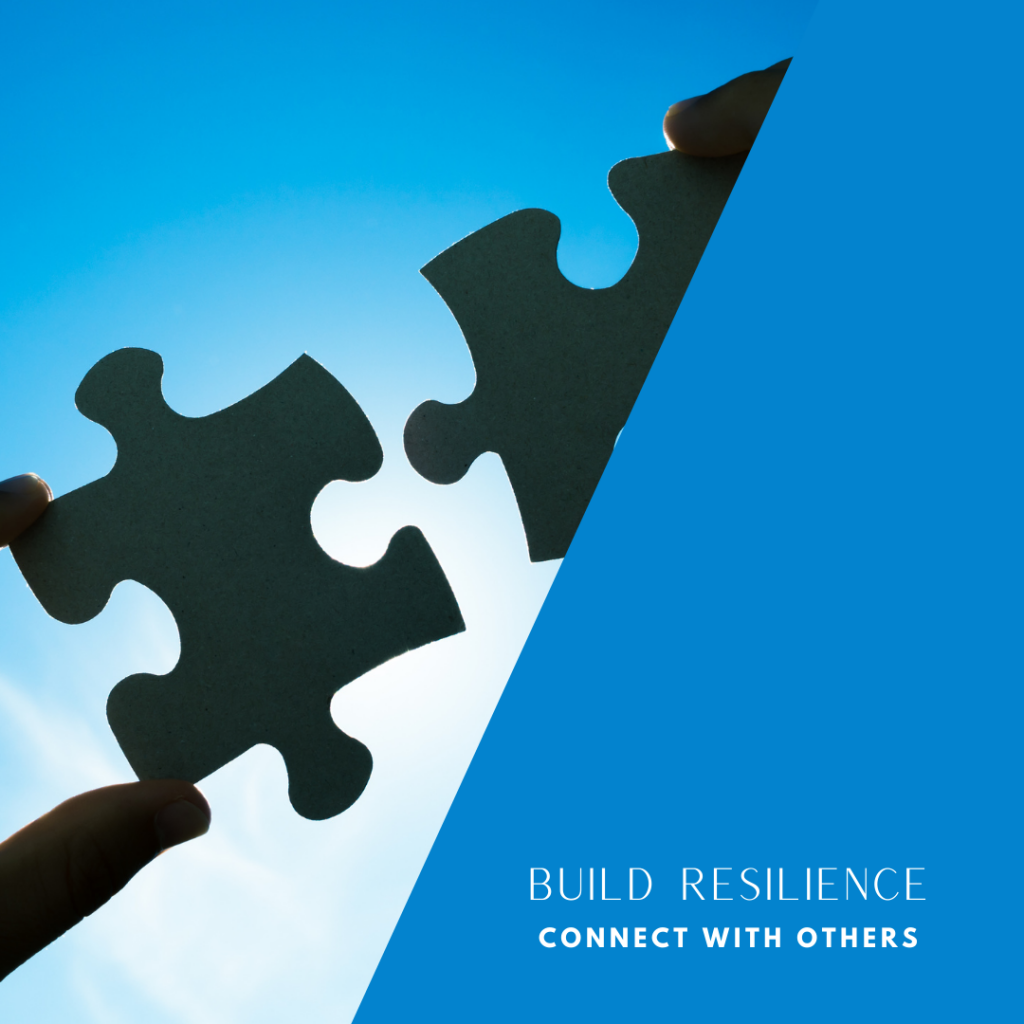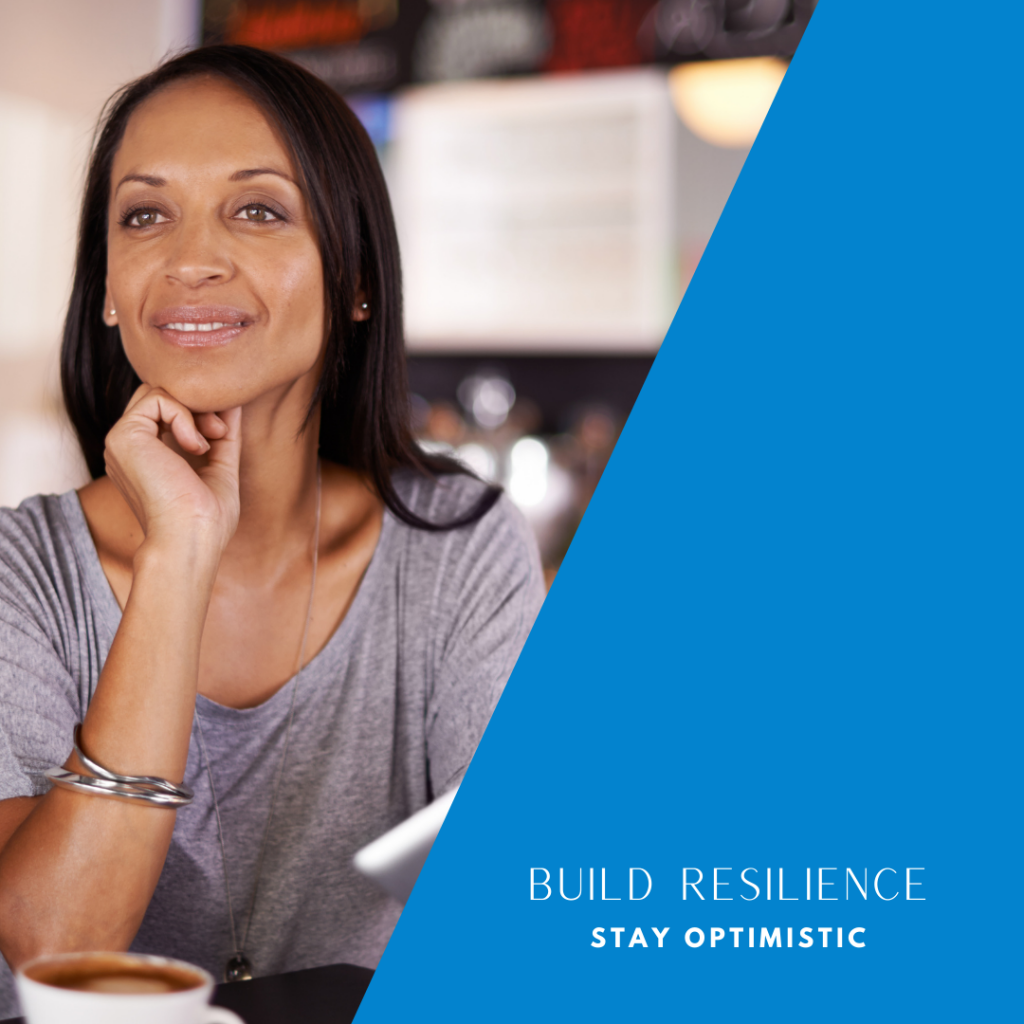10 Ways To Build Resilience

Our ability to bounce back and adapt to life’s obstacles and setbacks is known as resiliency. When you have resilience, you can accept failures and disappointments, acknowledge the reality of the situation, and move forward while learning from your mistakes.
Learning resilience can help you in many aspects of your life, including helping you appreciate life’s challenges, develop commitment that enables you to stay the course, and exercising personal control that empowers you.
Our top ten strategies for building resiliency can help you achieve your goals. Select those strategies that match your personal goals and situation, as there is no one-size-fits-all model for developing this essential life skill.
Change your attitude about setbacks.
You will never be able to stop crises from happening or unexpected events from changing your life. When you alter how you think about these setbacks, though, you are in control of how you cope with them. Setbacks don’t have to be viewed solely as negative, as they are often opportunities for profound learning and growth.
Meditate.
Meditation teaches you mindfulness and focus, which can allow you to be more resilient in the face of adversity. Meditation teaches you to silence the inner voices of regret and anxiety, giving you clarity to focus on what’s at hand. Mindfulness also shows you how to deal with negative emotions, which can significantly hinder efforts at being resilient.

Connect with others.
When you have a reliable social system, including family, friends, and colleagues, you are more likely to see solutions to life’s problems. Knowing you have others in your life who can help and support you makes getting through tough times more manageable. Social and spiritual groups can be helpful, as well, to helping you remain hopeful.
Create a new narrative.
When something terrible happens, our first instinct often is to relive it repeatedly, trying to understand the bad parts and make sense of what happened. When you shift the narrative to one of growth and learning, you learn how to deal with future missteps better. Instead of asking, “What went wrong?” instead focus on “What did I learn from this?”
Practice acceptance.
Change is inevitable, and when you learn to stop resisting change, you become more resilient to its impact on your life. Acceptance means you can understand when perhaps a goal is no longer attainable as well as recognize when circumstances are beyond your control. Acceptance allows you to walk away and spend your energy on situations where you can make a difference.
Nurture your own confidence.
When you believe in your abilities to solve problems, you become more confident in the face of setbacks. Nurture your positivity about yourself, taking care to trust your instincts. Celebrate your accomplishments, examine your strengths that can help you overcome adversity, and build resilience by focusing on your own power.
Set goals, then actively work toward them.
When you accomplish goals, you develop resilient beliefs about yourself. Set realistic goals, then make an actionable plan to meet those. Doing this regularly can help you feel ready to tackle more significant problems when they arise. Focus on what is achievable, and your resilience will grow quickly.
Don’t ignore the problem.
When you choose to take decisive action toward a problem, rather than opting to ignore the issue, you develop more tools of resilience. Acting in adverse situations can be difficult, but when you make the conscious choice to tackle the problem head-on instead of hoping it goes away, you are practicing resilience. And, by dealing with issues earlier, you can often avoid escalation, which creates even more substantial problems.

Stay optimistic.
Cultivating a positive outlook is vital for developing resilience. Optimism enables you to see potential positive outcomes and build perspective. It also helps you remember good things that are also happening so that setbacks don’t take over your thoughts. Staying positive is an essential aspect of resilience, so squash those negative thoughts when they start to appear.
Help others.
Helping others when they need assistance provides you with necessary confidence and optimism you need to develop resiliency. When you can successfully help someone else achieve a goal, it provides you with confidence in your own skills and knowledge, which you can tap into at the next sign of trouble.







